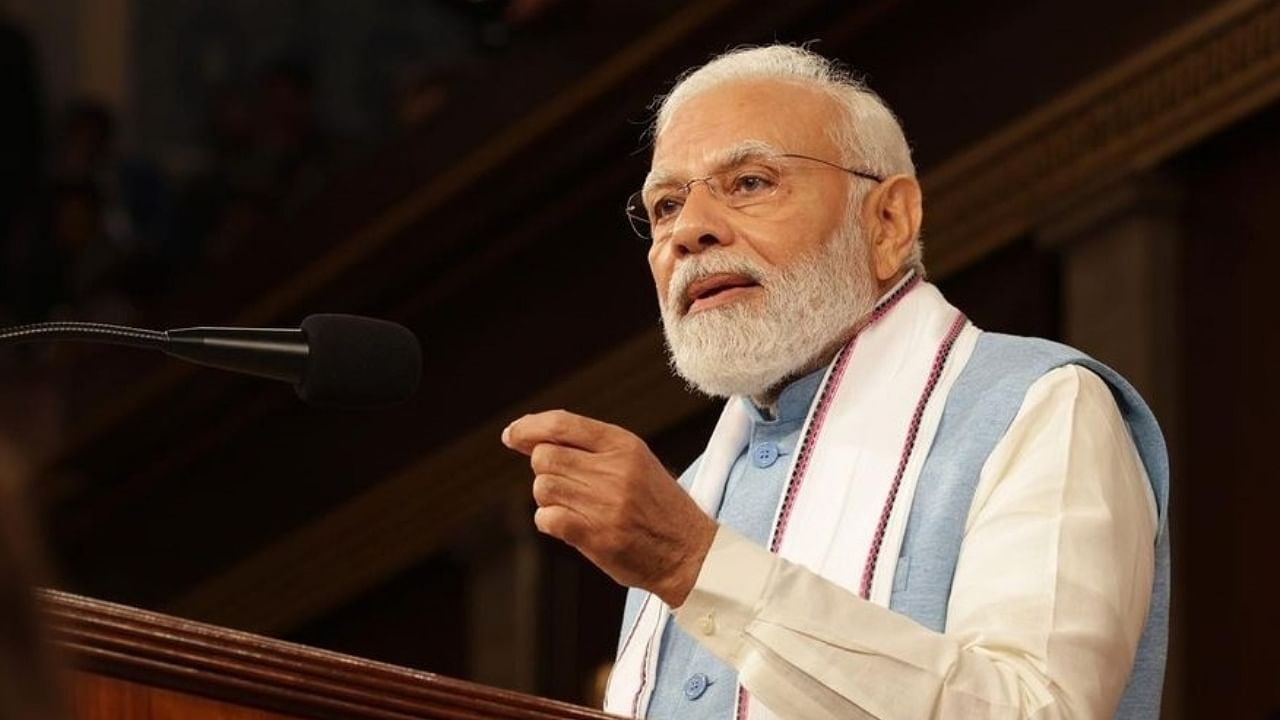
Prime Minister Narendra Modi has said the "dark clouds of coercion and confrontation" are casting their shadow on the Indo-Pacific, in a veiled attack on China amid its aggressive military manoeuvring in the strategically vital region.
In his address to the joint meeting of the US Congress for a second time on Thursday, Modi said the global order is based on respect for the principles of the UN Charter, peaceful resolution of disputes, and respect for sovereignty and territorial integrity.
"The dark clouds of coercion and confrontation are casting their shadow in the Indo-Pacific. The stability of the region has become one of the central concerns of our partnership," he said in the backdrop of the prolonged stand-off between the armies of India and China in eastern Ladakh.
The prime minister said a region where all nations, small and large, are free and fearless in their choices, where progress is not suffocated by an impossible burden of debt, where connectivity is not leveraged for strategic purposes, where all nations are lifted by the high tide of shared prosperity.
His comments came amidst the economic crisis in countries such as Sri Lanka and Pakistan, where China has made huge unviable infrastructure investments. The two South Asian countries are currently facing an unprecedented economic crisis.
"We share a vision of a free, open and inclusive Indo-Pacific, connected by secure seas, defined by international law, free from domination, and anchored in ASEAN centrality," Modi said.
"Our vision does not seek to contain or exclude, but to build a cooperative region of peace and prosperity. We work through regional institutions and with our partners from within the region and beyond. Of this, QUAD has emerged as a major force of good for the region," he said.
Meanwhile, in a joint statement issued after talks between Prime Minister Modi and US President Joe Biden, called for respecting the rules-based international order by all countries.
"As global partners, the United States and India affirm that the rules-based international order must be respected. They emphasised that the contemporary global order has been built on principles of the UN Charter, international law, and respect for the sovereignty and territorial integrity of states," the statement said.
India, the US and several other world powers have been talking about the need to ensure a free, open and thriving Indo-Pacific in the backdrop of China’s rising military manoeuvring in the region.
China claims nearly all of the disputed South China Sea, through which more than $5 trillion of trade passes annually.
The Philippines, Vietnam, Malaysia, Brunei and Taiwan have counterclaims over some of the areas claimed by China.
Beijing has built artificial islands and military installations in the South China Sea. Modi told US lawmakers that the last few years have seen deeply disruptive developments.
"With the Ukraine conflict, war has returned to Europe. It is causing great pain in the region. Since it involves major powers, the consequences are severe," he said.
"Countries of the Global South have been particularly affected. The global order is based on the respect for the principles of the UN Charter, peaceful resolution of disputes, and respect for sovereignty and territorial integrity," the prime minister said.
He added that: "As I have said directly and publicly, this is not an era of war". But, it is one of dialogue and diplomacy, Modi said. "We all must do what we can to stop the bloodshed and human suffering," he said.